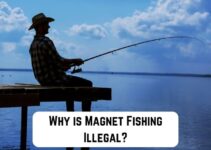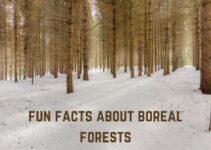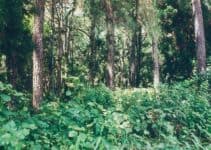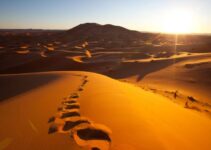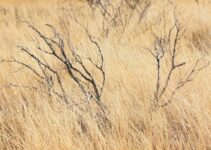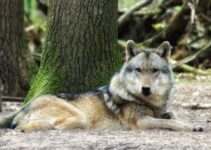Ecosystem simply means ‘ecological systems’. Ecology is defined as the study of ecosystems. Ecologists study the interaction of all the organisms in an ecosystem. The study includes complex interactions between thousands of plants and animals to the role of microbes living under the soil to the effects of tropical rainforest on the Earth’s atmosphere. The study done by ecologists can help us to better understand the world around us and can influence our lives in a positive way by improving the environment, managing our natural resources and protecting the public health.
According to Wikipedia,
“Ecology is the scientific analysis and study of interactions among organisms and their environment. It is an interdisciplinary field that includes biology and Earth science. Ecology includes the study of interactions organisms have with each other, other organisms, and with abiotic components of their environment.”
Ecological society of America says, “Ecology is the study of the relationships between living organisms, including humans, and their physical environment; it seeks to understand the vital connections between plants and animals and the world around them. Ecology also provides information about the benefits of ecosystems and how we can use Earth’s resources in ways that leave the environment healthy for future generations.”
The best way to understand what is ecology is to think of it as the study of relationships within a given environment. You can even have an “office ecology”. Scientists examine how resources are used and replenished by life forms, the natural growth and decay cycles and evolution within the balance and life forms that begin to move the ecology through new developments. While there are many different kinds of ecology studied it is best to start with the basics.
The more clearly we can focus our attention on the wonders and realities of the universe about us, the less taste we shall have for destruction.
– Rachel Carson
3 Basic Types of Ecology
All ecology breaks down and falls under three basic types. Under each of the basic types you can break down the ecologies even further, but these are the ones that will give you an understanding of what is an ecology.
1. Conservation Ecology – This refers to the ecology of the natural world and how it exists without the presence or interference of man, and how it exists with the presence and interference of man. It is common to find different areas in the wilderness or portions of public parks set aside with entrance restricted or forbidden because they are conservation areas. Conservation areas are set aside to protect conservation ecologies.
2. Urban Ecology – As you can guess by the name this one is focused on the balance of life within urban settings. It includes both conservation and human ecology, but the nature of an urban ecology is so different in how phases of ecological succession may develop that it is studied as its own entity. Urban ecology looks at the impact of human life on an area, how cities and urban areas manage resources and what the cycle of growth and decay within these unique environments are.
3. Human Ecology – Human ecology is multi-faceted. It focuses greatly on patterns of population and mortality, consumption of resources, conservation efforts and how humans affect plant, animal and other human life. Within human ecology you will also find people studying the impact of the human race on the atmosphere, space and the ocean.
3 Phases of Ecological Succession
Each of these ecology types go through three distinct phases of ecological succession. Succession is the term used to define how the development in one phase of the ecology is then used to allow the next phase to occur. While it may seem like this is a very ordered process, if the ecology is disrupted it may go back or forward a phase. To better explain succession we will use the example of what happens after a forest fire has destroyed life on the side of a mountain.
1. Primary – This is the beginning stage of an ecology. That side of the mountain may begin to be repopulated with seeds that have blown in on the wind, been planted by humans in a conservation effort, and the area may gain animal life from different types moving in to hunt or live for protection. The key to understanding primary ecology is that is begins with the minimal life that the area can support, which is then followed by the next life in the food or resource chain.
2. Secondary – During the secondary phase of the ecology life has begun again in the forest area. Grass and flowers may grow, small birds and mammals have returned and there have been two or three cycles of life to seed to decay to birth that have occurred. This then brings in more predators in the cycle to complete the cycle of life.
3. Climax – The climax stage of ecological succession sees a forest thriving on the mountainside again with all the plant and animal life you would expect. There is little evidence of the fire as the forest has aged enough to still be young, but to be well established. It is at this point that the ecology begins to slowly decline as it begins to overuse resources and conservation is needed.
What Can Disrupt an Ecology?
Problems happen when an ecology is disrupted. This can speed an ecology through its successive phases and cause it to die out quickly. Remember that no ecology exists by itself, but all ecologies exist within balance to each other. A small conservation ecology in the rainforest may not seem like a big deal, but it plays a part in managing air, climate and other resources needed by the human ecology a continent away.
Natural disruptions
Natural disruptions can come in the form of extreme weather such as prolonged droughts, heavy rain or snowfall, storms, hurricanes, tornado, monsoons and more. These also can involve seismic disruptions such as earthquakes and volcanic eruptions. These dramatic events can damage or change the balance within an ecology.
Man-made disruptions
Man-made disruptions can come in all shapes and sizes. There are the obvious ones such as clearing land, but less obvious ones when you are looking at an ecology in its secondary stage of succession that includes mankind. An increased drain on natural resources, such as water or fossil fuels, can set up a disruption. All forms of mining, including wind farms, disrupt ecologies as well.
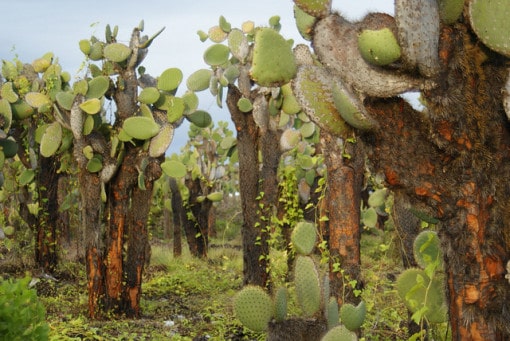
How To Protect Ecology?
There are many different ways that an ecology can be protected. Most of them are in place or in the process of being put in place now as the world begins to understand the importance of managing ecologies better. The three main ways that an ecology is protected are:
1. Conservation – As mentioned before, conservation is when an ecology is protected by harm by being set aside so it cannot be interfered with. In the USA, many of the major state and national parks are conservation areas. You can only visit certain places in the park while other areas are off limits to protect the ecology there.
2. Regulation – Regulations such as the Clean Air Act and other laws try to set limits on the types of man-made disruptions caused by expansion, exploration or industrialization that can occur. The goal is to limit the known impact on the natural ecology to preserve and maintain the resources that mankind depends on.
3. Replacement – This type of replacement is twofold. In areas where regulation has permitted conservation to be removed, companies may pay to have a new area seeded or protected to try and restore balance. Another aspect of replacement is the search for man-made substances that can replace natural resources. One example of this is the search for a viable alternative energy to fossil fuel.
Looking Forward
When you are trying to understand what is ecology you have to look in three directions – the past, present and future. While conservation helps to preserve the past, the present and the future need regulation and replacement efforts. Scientists are also working to better understand the first and third phases of succession better. As the influence and demand of humankind continues to grow on natural resources, it is becoming important to not only recognize when an ecology can no longer be saved, but to spot new ecologies as they come into being to protect them. An ecology is another term for a relationship between life within a given area. Ecology is an important and necessary science to protect all life on Earth.
